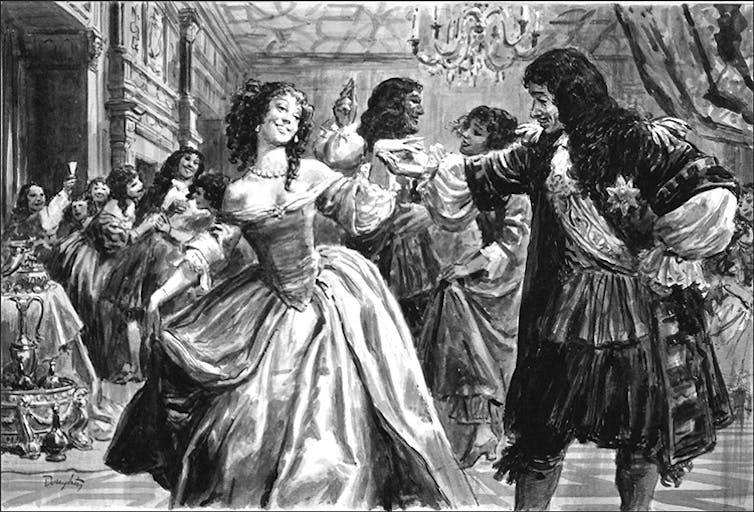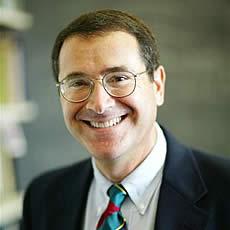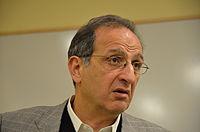Charles III: the difficult legacy and political significance of the new king’s name
On the day of Queen Elizabeth II’s death, the former Prince of Wales was proclaimed King Charles III. Although it’s been known for decades that Charles would succeed his mother, there were rumours that he might, once king, choose the name George due to the contentious legacies of Kings Charles I and Charles II.
At a time of political and constitutional uncertainty, Elizabeth II’s choice to name her son Charles is significant in understanding the monarchy’s vision for the future of the United Kingdom.
Charles I: a tyrant?
Naming another monarch “Charles” would make most historians cringe. The current king’s full name is Charles Philip Arthur George and he could have chosen any of those patronyms for his official royal designation.
Yet he’s kept the name with two namesake predecessors from the House of Stuart, who arguably lived through some of the most tumultuous days of the now British monarchy (so far).
Charles I was born at Dunfermline Palace, Scotland, in 1600 and ascended the thrones of the three kingdoms of England, Scotland and Ireland in 1625. From the start of his reign, the parliaments of England and Scotland demanded more power.
But Charles was a believer in the divine right of kings and felt he had been given absolute monarchical power by God alone and could not be held accountable to parliament.

He’s been described as a man of small stature with a stammer and a strong Scots accent, which did not work in his favour. Charles married the Bourbon princess Henrietta Maria, who was French and a Catholic.
It was a major issue for the protestant king, who was supposed to be the head of the Church of England, as were his attempts at religious reform that led to the the wars of the three kingdoms, which included the English civil war.
In the end, Charles I refused to create a constitutional monarchy (putting parliament rather than the monarch in control) and was convicted of high treason in 1649. He was executed in front of the Banqueting House in London, which became a symbol of the fall of the monarchy.
Charles II: a flighty king?

His son, Charles II, became a refugee in 1648 and spent considerable time in the Spanish Netherlands, the Dutch Republic and France. While Charles II was in exile at Versailles, he received financial support and free accommodation at the court of King Louis XIV.
Upon his restoration to the throne, Charles II became a patron of the arts and sciences and was a popular king. But he proved to be neither an effective statesman nor a great military leader, and failed to resolve the country’s religious divisions. His scandalous affairs did nothing for his reputation as the “merry monarch”.
Fate was cruel to him as well. Charles II had to rule through the 1665 Great Plague and the 1666 Great Fire of London. Overall, the name Charles is not associated with the best of times for the monarchy.
‘Charles III’: the Stuart pretender

There has already been a King Charles III, depending on whom you talk to.
In 1688, Charles II’s brother, the Catholic King James II of England and VII of Scotland, was deposed in a revolution. But his descendants, and their supporters known as the Jacobites, maintained their right to the throne.
James’s grandson, Charles Edward Stuart, popularly known as Bonnie Prince Charlie, led the unsuccessful Jacobite rising of 1745-6. He eventually adopted the title of Charles III, although it was never acknowledged officially in Great Britain or even by Catholic European leaders.
Charles III: king of a divided kingdom
The Jacobite succession has continued to be recognised, particularly in Scotland, by neo-Jacobites and legitimist organisations, including the Royal Stuart Society, founded in 1926. Some, therefore, may consider the new king’s choice disrespectful to the memory of the exiled Stuarts.
Reigning as King George VII could have honoured Charles’s grandfather and great-grandfather, Kings George VI and George V. Choosing to forgo this title in favour of Charles III suggests possible political and somewhat controversial undertones.
By the 19th century, Jacobitism came to be viewed as a lost and romantic cause. Queen Victoria, a descendant of King James I of England and VI of Scotland, wrote in her journal that “Stuart blood is in my veins”.
Elizabeth II, like Victoria, had a well known love of Scotland. The recent Queen’s choice of forename for her son and heir may have been a personal one to honour her mother, whose Scottish family has even closer ties to the Stuarts.

Conversely, this decision could be a calculated move by the British monarchy to reconcile the memory of the Stuarts with the legitimacy of the current House of Windsor.
The rise of Scottish nationalism has raised questions about the cohesion of the United Kingdom. The death of the Queen may spur supporters of a second referendum on Scottish independence.
The choice of the monarchy to call on the royal title of the most well-known Jacobite pretender can be read as an attempt to evoke the last fully Scottish royal family, and emphasise the King’s legitimacy as sovereign of all parts of the United Kingdom.
Calum Cunningham, PhD in History, University of Stirling and Jérémy Filet, Lecturer in the department of Languages, Information and Communication, Manchester Metropolitan University
This article is republished from The Conversation under a Creative Commons license. Read the original article.















